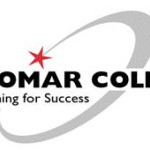- Industria: Education
- Number of terms: 12355
- Number of blossaries: 0
- Company Profile:
Founded in 1946, Palomar College is a public two-year community college in the city of San Marcos, located in north San Diego County, California. Palomar offers over 300 associate degree, certificate programs and is designated by the U.S. Department of Education as an Hispanic-Serving Institution ...
A ridge of bone projecting up, from front to back, along the top midline of the skull. It serves as a muscle attachment area for the temparalis muscles that extend up both sides of the head from the mandible (jaw). The presence of a sagittal crest indicates that there are exceptionally strong jaw muscles. Some Australopithecus afarensis and the robust australopithecines (Australopithecus robustus, boisei, and aethiopicus) had sagittal crests. Among the living primates, the most prominent sagittal crests are found on adult male gorillas. Humans do not have them.
Industry:Anthropology
A blood disease of fetuses and newborn infants caused by the mother's anti-Rh+ antibodies agglutinating or bursting the red cells of her infant's Rh+ blood. Symptoms include life threatening anemia, jaundice, fever, swollen tissues from edema, and an enlarged liver and spleen. Serious cases are treated by blood replacement. Erythroblastosis fetalis is also referred to as "hemolytic anemia" and "hydrops fetalis. "
Industry:Anthropology
The name given by advocates of the replacement model of modern Homo sapiens to the last presumed common ancestor of modern humans based on a comparison of mitochondrial DNA from around the world. She is presumed to have lived about 200,000 years ago.
Industry:Anthropology
The neck-like opening at the lower end of the uterus that connects to the vagina.
Industry:Anthropology
The maintenance of two or more alleles for a trait in a population at a more or less constant frequency ratio due to the selective advantage of heterozygotes. See polymorphism.
Industry:Anthropology
The New World is the Americas. The Old World is Europe, Asia, and Africa. This distinction is an ethnocentric reflection of the European origin of our modern sciences.
Industry:Anthropology
The number of chromosomes in gametes. Human sperm and ova normally contain only 23 chromosomes, which is the result of the halving of chromosome pairs in meiosis. See diploid number.
Industry:Anthropology
The number of protons in the nucleus of one atom of an element. See atomic mass.
Industry:Anthropology
The number of times that something happens. For example, the number of people out of 100 who get divorced would be the frequency of divorce.
Industry:Anthropology
A blood disease of fetuses and newborn infants caused by the mother's anti-Rh+ antibodies agglutinating or bursting the red cells of her infant's Rh+ blood. Symptoms include life threatening anemia, jaundice, fever, swollen tissues from edema, and an enlarged liver and spleen. Serious cases are treated by blood replacement. Erythroblastosis fetalis is also referred to as "hemolytic anemia" and "hydrops fetalis. "
Industry:Anthropology
